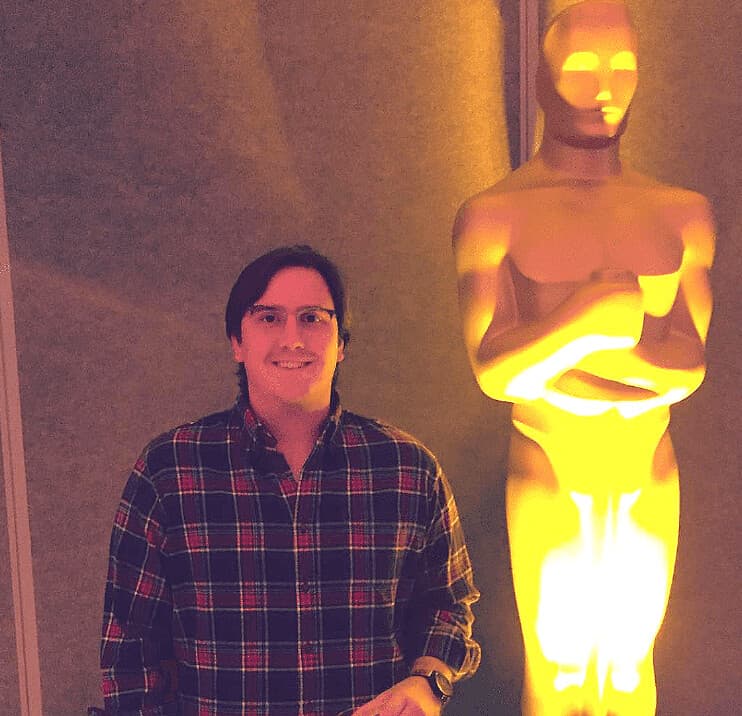Own The Future: Why I Believe Screenwriters Should Embrace AI

Own The Future: Why I Believe Screenwriters Should Embrace AI

To say the movie industry is in a transitional stage would be an understatement. Studios are still behind their pre-strike production output. Despite the outcome of the strikes, AI is still seen as an existential threat to professional screenwriters and the screenwriting community at large. The trend of studios staking all their output on tentpole franchises hasn’t seemed to lose momentum inside Hollywood studios, despite the fact that audiences speaking with their wallets want to see something new.
It is the last point I would like to focus on. Justine Bateman recently wrote an OpEd for The Hollywood Reporter in which she declared that Hollywood is dead and a new model will rise from its ashes. Naturally, this is her opinion, and you can say what you want about the career she has had, but the fact remains that she has spent her entire life and career in the entertainment industry, and she knows as much as anyone about how it worked then and how it works now. It’s reasonable to believe that her ideas on how it will work in the future are more than plausible.

The Phoenix That Rises From the Ashes of Old Hollywood
In her article, Bateman opined that the phoenix that rises from the ashes of old Hollywood will be one of unbridled creativity. It will be a leaner system where artists and other creatives will be able to work unencumbered by the traditional Hollywood executives who have dominated the business for the past thirty years. Smaller, more independent studios will grow in this new garden of creativity, blossoming fresh, innovative story ideas that would never see the light of day in the current system.
While such a utopia seems unlikely at this point, there is reason for optimism. No one ever made money betting against technology, and now that the Pandora’s Box of AI has been opened, it will never be closed. The future of the industry will likely be split between AI’s masters and those who are left in its wake. It’s time for all of us to take a cue from Walt Disney. When television first became a thing, all of the Hollywood studio heads were terrified of it. Seeing it as the wave of the future, Disney embraced it and made it a significant part of the work they produced. In so doing, the Disney studio was in a position to take advantage of a burgeoning market and technology, which helped the studio grow. Disney the studio was at the forefront of showing their library of content on television because Disney the man had the foresight to recognize television as an opportunity rather than a threat.
Screenwriters must have the same foresight that Disney had. There’s no reason to allow executive producers and studios to dictate the terms of AI’s use and expansion. AI must be seen as a tool. Yes, it is going to change the industry in a profound way. It’s already doing that in fact, but it doesn’t have to be a death knell for screenwriters. The future is open-ended. As Yoda told Luke Skywalker in The Empire Strikes Back, “Always in motion is the future.”

We've Been Here Before
A similar transition happened in the animation industry a quarter century ago.
Animation was the first form of filmmaking, dating back to Windsor McKay’s Gerti the Dinosaur cartoons that first mesmerized audiences in 1914. From that point on, animation was drawn and painted by hand. Disney developed the CAPS system, which turned ink and paint into a digital process in the late 80s and early 90s, and Tron showed the first glimpses of what computer animation could do in the mid-80s. By 1996, PIXAR released Toy Story, the first feature-length CGI film, and a decade later, hand-drawn animation seemed, for all intents and purposes, to be dead.
I was working at Disney in the early 2000s. I worked on three of Disney’s last hand-drawn movies before the switch to CGI, and I worked on Disney’s first all-CGI film. To say the transition was clunky would be an understatement. A lot of talented people who had worked at Disney for decades lost their jobs. But an interesting thing also happened. Those who were willing to either embrace or accept the fact that CGI was the way Disney animation was going to make movies moving forward, for the most part, held on. Animators who made a living working in graphite made the transition to pixels. They realized the computer, as different as it is from a pencil, was simply nothing more than another tool they could use to create their art. Many of those artists are still working today, whether it’s at Disney, DreamWorks, or any other studio around town.
The animation industry has been one thing for eight decades.
There had been one way to make an animated film, and many people felt it would be the only way to make one moving into the future. But the future has a funny way of changing. It also has a funny way of being feared by the very people who should embrace it.

Now is the Time to Explore
The same thing can be said about screenwriting. The art of writing a screenplay has been relatively unchanged from the time sound was introduced into filmmaking. Certainly, there have been variations on the craft. There have also been movies that have been made without traditional screenplays, but those movies are few and far between. Ninety-five percent of the movies you have ever seen started with a man or woman in front of a typewriter or computer pounding away on a keyboard. Just like Disney made The Princess and the Frog after the CGI revolution happened and several other international studios continue to produce animated films in the traditional way, there will always be a place for the traditional screenwriter in the production pipeline.
But now is the time to explore other options. This is a curve you want to be in front of. This is a wave you want to be on top of rather than getting swept underneath. Now is the time to own the future because, as Jimmy Buffett said, “I can’t see the future, but I know it’s coming fast.”
Let's hear your thoughts in the comments below!
Got an idea for a post? Or have you collaborated with Stage 32 members to create a project? We'd love to hear about it. Email Ashley at blog@stage32.com and let's get your post published!
Please help support your fellow Stage 32ers by sharing this on social. Check out the social media buttons at the top to share on Instagram @stage32 , Twitter @stage32 , Facebook @stage32 , and LinkedIn @stage-32 .
About the Author

Brian Smith
Production Manager, Screenwriter, Script Consultant
Brian has been a professional screenplay reader since 2006, and has written coverage for over 1,000 scripts and books for companies such as Walden Media and Scott Free Films. Scripts and books that Brian has read and covered include Twilight, Touristas, Nim’s Island, Hotel for Dogs, and Inkheart. Br...





